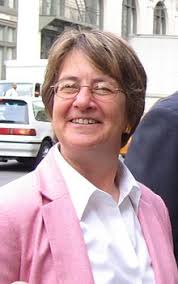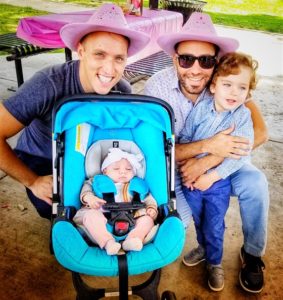When I started telling people I was having a baby with a gestational surrogate, the responses ranged from awkwardly supportive to just awkward.
A woman at a party congratulated me, praised me for being so clever, so ahead of the times. “Ugh, you’re brilliant,” she told me. I’d have someone else do the dirty work of motherhood for me. Genius.
Others wanted me to know I was in good company: Kim Kardashian had just been through the process. So had Gabrielle Union. And Andy Cohen. And now me!
My traditional Indian mother, fiercely private and surprisingly sneaky, had another idea. She thought it might be better if we made up a story that the baby was adopted. “People aren’t going to understand this,” she said.
Misguided, to be sure, but my mother (as usual) had a point: There is still an incredible amount of secrecy around the gestational surrogacy process. And wherever there is silence, stigma isn’t far behind. It’s for rich people, it’s immoral, it’s dystopian, it’s exploitative…
I know that these are just a few of the thoughts swirling in people’s heads when I tell them that this month a woman named Amber in Kansas will deliver my son. For me, and for countless other families who struggle with fertility, surrogacy isn’t a luxury or shortcut: It’s the light at the end of a very long and lonely tunnel.
The first time I got pregnant, I had just started running for Public Advocate in New York City. It was unexpected, but welcome news. My husband, Nihal, and I were so excited. We told family and friends with abandon (12-week rule be damned!). We changed our destination wedding date so I wouldn’t have to travel in the third trimester. That was almost eight years ago, and we were blissfully, naively unaware of what was ahead of us.
I remember fantasizing about being pregnant while running for office. I imagined how I would march my big fat, swollen feet all over the five boroughs knocking on doors. I would be a symbol of feminine power on the campaign trail: a knocked-up Rosie the Riveter. My baby would be a born public servant, just like me.
When we went to the doctor for our first appointment and saw the solemn look on her face, we didn’t understand. We were no strangers to failure. I had publicly bombed a race for Congress two years before. Nihal, an entrepreneur, had learned resilience from running start-ups. But this was supposed to be easy. Isn’t this what we were born to do? We were shocked that something like this could happen, that we could lose our baby.
Two nights later I put on a brave face and got on stage to introduce President Obama at a fundraiser. It should have been the best night of my life, but I was dying inside, literally, the entire time.
Six months later I miscarried again, hours before I was slated to give a huge pitch for my nonprofit to the “who’s who” of New York City. My job was to be dazzling. I felt so much rage knowing it was easier to betray myself and go through the motions than to admit why I couldn’t.
Vogue.com by Resma Saujani, January 24, 2020
Click here to read the entire article.
The post I Just Wanted a Baby, But Surrogacy Gave Me So Much More appeared first on Time For Families.
Source: Time for Families








 The Mentor Esq. was founded by
The Mentor Esq. was founded by







